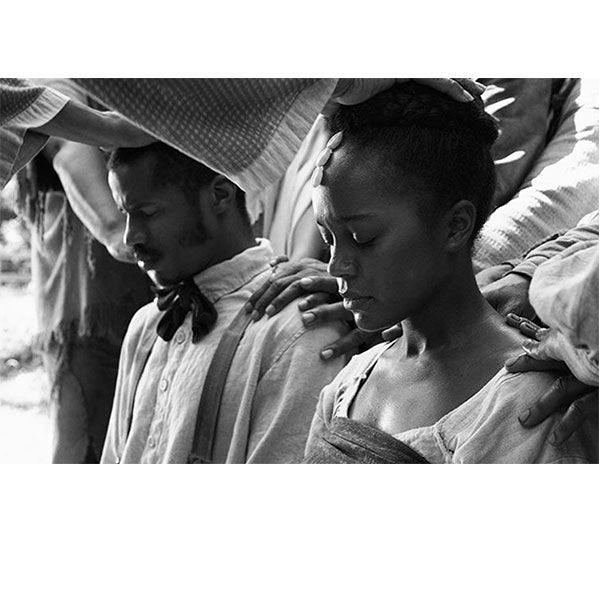
The life and times of Nat Turner—the slave brought to life at the hands of Nate Parker, who steps into the role of the preacher turned rebellion leader in The Birth of a Nation—is about protest and power but subtly about the inner struggles of Black love too.
While the film may be laced with historical fiction and drama, it tells an important story about the way we love, both romantic and platonic are shown in a community of enslaved people that still matters today.
Stars Aja Naomi King and Colman Domingo have a conversation with ESSENCE in which they collectively offer these reasons why Turner’s rebellion isn’t the only focus of the film.
It’s About a Communal Love and An Unwavering Love
Aja Naomi King: “When Cherry is on the auction block, Nat doesn’t say what he says to his master because ‘Oh, Cherry is so beautiful and he wants to marry her.’ He says it because he cannot be complacent in the further of her destruction. That very human communal love. ‘To think, I love you so much that I cannot watch anyone else attempt to degrade you.’ It’s holding on to that greater love, a love for yourself and a love for your people that allows that romance to blossom.”
Colman Domingo: “Watching Hark see his wife go off and be handled by someone and coming back and withstanding there and waiting. In my mind, I think he probably waited for hours. She was handled for hours, and he stood right there by the tree unwavering in his love, because he’s a person who feels, ‘When I believe, I believe the first time. When I love you, I’m going to keep on loving you even in the hard times. Even when you think that you’re broken and you’re just so fallen apart.’ I think that he has his arms wide open and takes her back to make her whole. To let her know that she is still every ounce of a woman that he thinks she is. He’s a comfort in every single way.”
It’s About a Love for Black People
ANK: “The idea of love, the idea of loving–not only your partner so much, but loving your community so much, loving your people so much, that through that love you’re like ‘I’m going to risk it all. I’m going to go to battle for things that I’ll never experience and feel.’ It’s a partnership. ‘I’m loving you to go fight for our ancestors, and we’re complicit. We’re together. We’re all doing this.’ That’s one of the strongest messages for me in this film.”
CD: “To see how powerful love is—for me that message is one of the strongest messages for me. I think that in a strange way this film is a love poem to insulate people. The only reason why any of us are here, any of us who are descendants of slaves, we’re here because of love. It’s resistance, but it’s also a whole lot of love and whole lot of laughter, otherwise we wouldn’t be here.”
Subscribe to our daily newsletter for the latest in hair, beauty, style and celebrity news.
It’s About the Idea That Black Families Matter
ANK: “The love is what carries us through. I do believe love is a learned thing, and you can can see how Aunjanue [Ellis] and Esther [Scott] played Nat’s mother and grandmother, respectively. They dowed him with this great love and sense of identity just by the way they raised him up, so that when he’s encountered Charity, he can then pour that love into her, and she can pour that love into their child. It carries on. Just the responsibility of that. The thing that means the most to me is that yes there’s romantic love, but more than that is there’s just a kind of human love.”
Freedom Is Love
CD: “James Baldwin always talks about darkness [and it being] important to find the light. That’s what we’re doing [in the film]. [Nat] found that light and once he got a taste of it, he didn’t want it to ever go away. You get a sample of it, and you can’t go back to the darkness truly. That’s exactly where you get a taste of freedom. You get a taste of being free. You’ll do anything in your power to get it.”
Because Black Brotherhood Is Key
ANK: “That moment when Nat is finally trying to defy the other preacher and they’re going back and forth with bible quotes attempting to one up each other that is proving how the bible is actually telling him that he deserves to fight. ‘Beware of those prophets,’ and he gets hit by the butt of the gun, and we look right to Hark, and Hark has that piece of wood and is like “Is it time?” That was love. That is “I am with you. I am with you always because I love you. I stand beside you. I stand in front of you. I shield you with my love.”